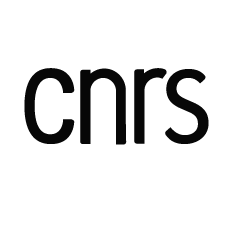Team DEEP
Presentation Team DEEP
Coordinators: Delphine Grynberg & Karyn Doba
The DEEP’s team leads a global project aiming to constitute a competence center in Affective Sciences. To this end, the team resources are focused on the analysis and dynamics of emotional processes regulation, strongly associated to several pathologies and health challenges. The research program, subtended by several advanced multilevel techniques, allows a wide spectrum of emotional information analysis, from the brain control to complex social interactions. The DEEP’s approach aims to develop new and efficient therapeutic procedures both at individual and family levels.
Methods: brain recordings (EEG, ERPs, Oscillations, MEG); autonomic recordings (facial thermal variations, electrodermal activity, heart rate and variability, respiratory and pupillary variations); behavioral measures (eye movements, quantitative narrative analysis, psychometric assessments, video-behavioral analysis).
Populations: healthy adults or having sub-clinical symptoms and patients with mental, somatic or neurological illnesses.
The study of the affective dimensions of behaviour has acquired a new status with the advent of affective neuroscience. These have integrated the psychological questions associated with the most sophisticated spatial and temporal resolution techniques and now obtain major results concerning the cerebral mapping of emotions, the bodily impact of emotions and their regulation. Within this framework, our research priorities will focus on:
1/ the emotional salience conveyed by several sensory channels, its impact at cerebral, physiological and behavioral levels and its modulation by psychological traits;
2/ the regulation of emotional responses on the basis of individual traits, cognitive components and contextual elements and how these regulatory skills are acquired;
3/ the prediction of affective behaviours, in particular those related to the development of social cognition skills (reading intentions between partners, mental understanding and emotional states);
4/ the understanding of emotional processes to account for their disturbances in mental pathologies and personality disorders or in adapting to stress/crisis situations such as the announcement of somatic illnesses or the onset of chronic illnesses.
In short, the aim of the team is to determine, through an integrated multi-level approach (cognitive, behavioural and physiological), the privileged or even priority nature of the affective components in the management of cerebral and cognitive resources and in determining behaviour. In this context, the development of emotional skills and emotional regulation capacities are clearly identified as central and trans-nosographic elements to protect against the risk of setting up or maintaining mental or somatic pathologies to achieve a satisfactory level of well-being. The aim is therefore to understand these mechanisms in order to propose educational and psychological interventions to develop such skills or to protect them in crisis situations.
MEMBERS TEAM DEEP
Coordinators : Delphine Grynberg (Pr) & Karyn Doba (Pr)
Researchers : Mélissa Allé (MCF), Pascal Antoine (Pr), Emilie Constant (MCF), Gérald Delelis (MCF), Karyn Doba (Pr), Jeanne Duclos-Lavagne (MCF), Claire Ducro (MCF), Marie-Charlotte Gandolphe (MCF), Delphine Grynberg (Pr), Pauline Justin (MCF), Astrid Mignon (MCF), Jean-Louis Nandrino (Pr), Emilie Wawrziczny (MCF)
Chair INCA : Kristopher Lamore
PhD Student : Carolina Aparicio Araújo, Emilie Auger, Constance Beaumont, Clara De Groote, Léa Demeulenaere, Lison Dobrowolski, Ambre Ittouchene, Clara Lefebvre, Céline Maupin, Louise Ramadas, Louise Richez, Elena Ruyant Belabbas, Elisa Ryckewaert
MAST : Xavier Saloppé
Post-doctorant : Charlotte Manceau
ATER: Emilie Auger, Clara Degroote, Louise Ramadas
Personal on research contract : Léna Carton, Clara De Groote, Martin Rebillon, Louise Zanni
Themes of study
The experimental program is focused in healthy individuals or suffering from affective (anxiety, depression) or brain disorders (Multiple Sclerosis, Alzheimer or Parkinson diseases) and aims to caracterize their cerebral (EEG*, MEG), autonomic* (electrodermal activity, facial thermal variations*, hear rate variability and respiration) and behavioural (eye movements and reaction times) reactivity to emotional stimulations presented at central or peripheral visual eccentricities. (*) Illustrations:
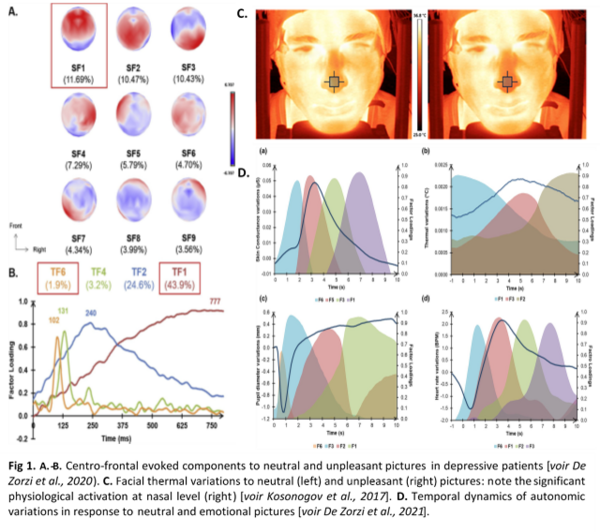
Research programs are focused on cognitive processes and behaviours allowing on one hand to modulate the identification of valence and intensity of emotional stimuli and on the other to modify the emergence of emotional feelings at conscious level. These programs apply to general population and in patients with mental or somatic pathologies. It should also be noted that research programs are integrated in a global trans-diagnostic approach.
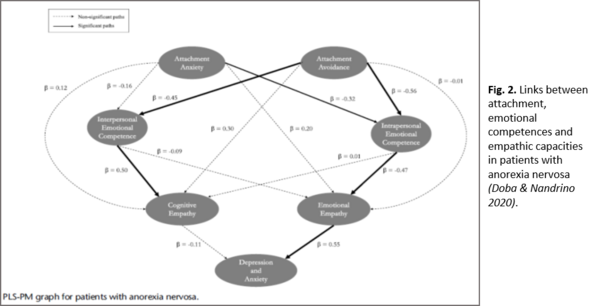
Research programs examine links between construction, organization and restitution of autobiographical memories on one side and regulatory processes of emotion on the other. These programs aim to analyze the way to put together: memories in the construction of the Self and phenomenological and physiological markers linked to life experiences.
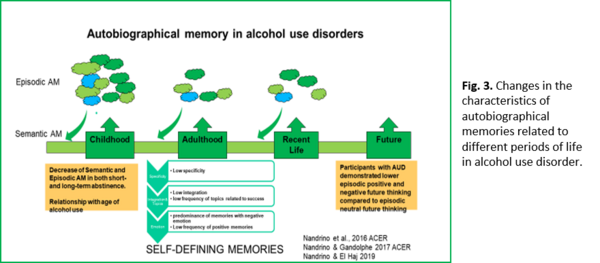
Research programs aim to identify the evolution induced by events having high emotional intensities on the dyadic organization both at the level of young couples and parent-child interactions. Adjustments concern each member of the dyad, their interactions and the reciprocal dyad.
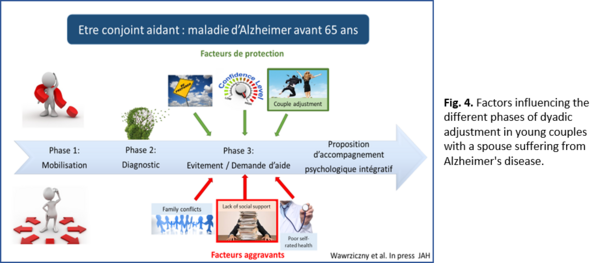
Training programs to regulate emotions. Support programs for family caregivers. Online programs related to emotional field. Autobiographical memory training programs.
